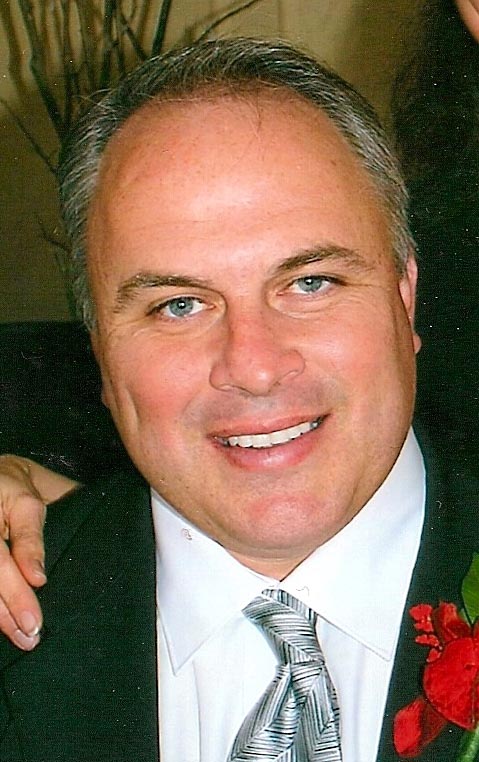
By Daniel Whitley

To Order More, Click Here
Let’s think about Samson a little more. The Scripture states that he slew more in his death than he did in his life. Let’s look at his death and his life. His life was one of self-indulgence, undisciplined and utterly sensual. The answers as to his strength were always available to the enemy; all they needed was the right question. Samson never learned one of the most powerful words in any language: NO! His answer to everything was “yes.” He thought that if he wanted it, he should have it. Telling himself “no” was never an option with him. All they had to do was stumble on to the right question.
He saw a woman. He said, “I want her.” He told his parents to get her for him. They said, “Son, she is one of the enemy.” “Yeah, but I want her.” “Are there no women of your own people?” they asked. “Yeah, but I want her.” So he got her. He dumped her later for betraying him in the whole riddle thing. He wanted food, so he ate honey from the carcass of a dead lion although it was forbidden by his vows as a Nazarite. He saw another woman. “I want her.” Her name was Delilah. Samson has always been known for one thing, strength. He did not know that his strength was not in his muscles. It was not in the length of his hair. His strength was not even in his Nazarite vows. His strength was only in his ability to say “no” to Delilah, which was actually saying “no” to himself. There you have a look at his life.
Now let’s take a look at his death. The once proud and arrogantly powerful Samson had been humbled. There is something about the grindstone that he pushed in the mill, something about the dry sockets in his skull which allowed only darkness into his mind that is very humbling. Then he had the constant gloating and belittling mocking of the Philistines to finish the job of making Samson humble. I have a great appreciation for those who, like Jesus, humble themselves. The Scripture states that He “made himself of no reputation, and took upon him the form of a servant, and was made in the likeness of men: and being found in fashion as a man, he humbled himself and became obedient unto death, even the death of the cross” (Philippians 2:7-8, emphases mine).
He made Himself of no reputation, took upon Himself the nature of servitude, humbled Himself, and became obedient unto death.
Humility is much more meaningful when it is chosen, rather than when it is imposed. However, there are few who choose humility when arrogance is available. Few make for themselves no reputation when repute is possible. Few will take servitude when lordship is an option, but it is awesome to watch someone when they do choose these things. When self-gratification is the way of the world, someone capable of self-denial is truly a spectacle.
The word no is a powerful word, particularly when we are willing to say it to ourselves. Unfortunately, Samson’s was an imposed humility. Nevertheless, Samson was humbled. Humility, regardless of how it is acquired, is certainly preferable to arrogance and self-importance.
Samson was at that point being led by a child into a great pagan temple for the purpose of having yet more humility imposed upon him. They were bringing him in to “make sport of him.” Here, in this hostile environment, for the first time Samson discovered the secret to real victory. He made his three final requests, and these three requests are still the outline for real victory today.
Request number one was a request for position, made of the child who led him.
Judges 16:26: “And Samson said unto the lad that held him by the hand, Suffer me that I may feel the pillars whereupon the house standeth, that I may lean upon them.”
Similar to the battle in the story of Gideon’s army, position was a premium. His first request was made of the child who led him. He asked to be led to the pillars on which the temple rested. He knew that all the power in the world was of no particular value until strategic position was achieved.
Request number two was a request for power, made of God who empowered him.
Judges 16:28 (emphasis mine): “And Samson called unto the LORD, and said, O Lord GOD, remember me, I pray thee, and strengthen me, I pray thee, only this once, O God, that I may be at once avenged of the Philistines for my two eyes.”
Just as power is no good without position, position is useless without power. Samson knew that power would have to be granted in order to make his position meaningful.
Request number three was a request for self-denial, made of himself.
Judges 16:29-30 (emphasis mine): “And Samson took hold of the two middle pillars upon which the house stood, and on which it was borne up, of the one with his right hand, and of the other with his left. And Samson said, Let me die with the Philistines. And he bowed himself with all his might; and the house fell upon the lords, and upon all the people that were therein. So the dead which he slew at his death were more than they which he slew in his life.”
Request number three was the one request that Samson had never been willing to make. “Let me die. It’s not about me anymore.” It was the demand he would never make of himself. It was the one ingredient that was always missing in his life. He found it, the missing piece that made victory complete. Until he viewed himself as disposable, his power and position profited nothing.
He made a demand of his leader. He made a demand of his God. He made a demand of himself.
We seldom have a problem making demands of our leaders. We certainly have no problem making demands of God. It is time, if never before, to make this demand of ourselves. “Let me decrease, that Christ may increase. Remove my ego, my ambition, my self-interest from this recipe, and see if God can deliver the victory that we all know is possible.”
Let’s take a moment here to reflect on the previous chapter. Fasting is a great way to make this demand on yourself. In any case, it is necessary that the ego dies, and it’s always preferable that it die in the laboratory than in the mill.
This book is not another book showing you how to make your life more dynamic. I have not found some secret, obscure, overlooked formula that makes you prosperous. I have not discovered the prayer which magically makes you more prosperous or that unlocks any spiritual secrets. Your life could not be more dynamic than it is. There is nothing anyone can do to make the light in you (which John said “was the life of men”) more impressive. It does not get any better than God living inside you. Hello! No book you can read (including this one), no prayer you can pray, no seminar you attend, no cassette series, nothing can be done to make your life any brighter than it is right now (provided you have His Spirit, His light living within you). We do not need another book telling us how to make the light stronger. But we need to make the pitcher weaker. What we need is a willingness to break, to be removed, and to be discarded so that dynamic light can shine. I will say again that none of us can say we have self-control until we are capable of self-denial and can make these trying demands on ourselves.
Luke 9:23-25 (emphasis mine): “And he said to them all, If any man will come after me, let him deny himself, and take up his cross daily, and follow me. For whosoever will save his life shall lose it: but whosoever will lose his life for my sake, the same shall save it. For what is a man advantaged, if he gain the whole world, and lose himself or be cast away? “
We should familiarize ourselves with the word no. Practice using it. Use it on yourself. You will instantly feel the power of it. It is quite exhilarating.
A close examination of the following verses from a couple of different translations (emphases mine in both) will drive this point home, I hope.
I John 2:15-17 (KJV): “Love not the world, neither the things that are in the world. If any man love the world, the love of the Father is not in him. For all that is in the world, the lust of the flesh, and the lust of the eyes, and the pride of life, is not of the Father, but is of the world. And the world passeth away, and the lust thereof but he that doeth the will of God abideth for ever:”
Read this same passage from The Living Bible translation: “Stop loving this evil world and all that it offers you, for when you love these things you show that you do not really love God; for all these worldly things, these evil desires—the craze for sex, the ambition to buy everything that appeals to you, and the pride that comes from wealth and importance—these are not from God. They are from this evil world itself. And this world is fading away, and these evil, forbidden things will go with it, but whoever keeps doing the will of God will live forever.”
Self-control is the hitch pin to a relationship with God. The love of the Father cannot exist in the absence of self-control. Self-control cannot exist in the absence of self-denial.
I realize that this is not a marketable message that I’m presenting here, but I do believe that the only thing that can keep the light from shining is the unwillingness of the soldier to break the pitcher. Our flesh is a hard thing to rebel against. The flesh believes that it should never be deprived of anything it wants. Discomfort is of necessity evil. Comfort and ease are necessarily good. This mentality is not compatible with the plan that brings victory.
The craze for sex is a large part of what the Scripture calls “lust of the flesh.” I need not say more. We know that we are in a world awash in sensuality and it must be resisted by anyone professing the love of God. Enough said.
The ambition to buy everything that appeals is included in the phrase “lust of the eyes.” A great deal should be said here. The church is struggling greatly with materialism. The materialism that is prevalent in the world of religion today is so contrary to the example set by Jesus and His apostles that I fear we are disqualifying ourselves from ever resembling them in any way. There is no need to take a vow of poverty. To avoid material blessings would serve no purpose; however, to seek them so shamelessly in preference to the kingdom of God is telling.
This article “The Demand We Won’t Make” written by Daniel E. Whitley, was excerpted from the book A Pitcher’s Purpose. It may be used for study and research purposes only.

To Order More, Click Here



1 thought on “The Demand We Wont Make (Entire Article)”
Comments are closed.